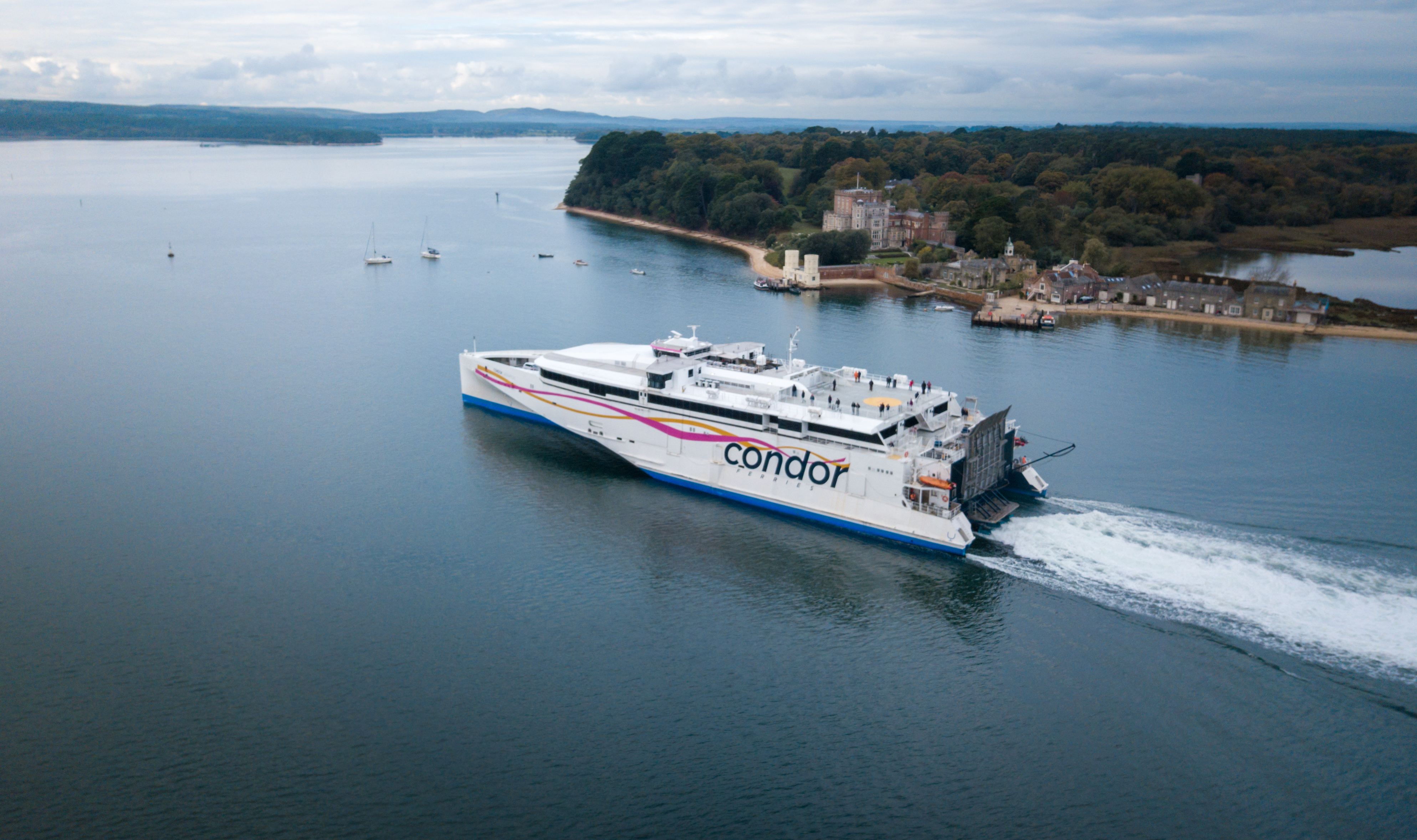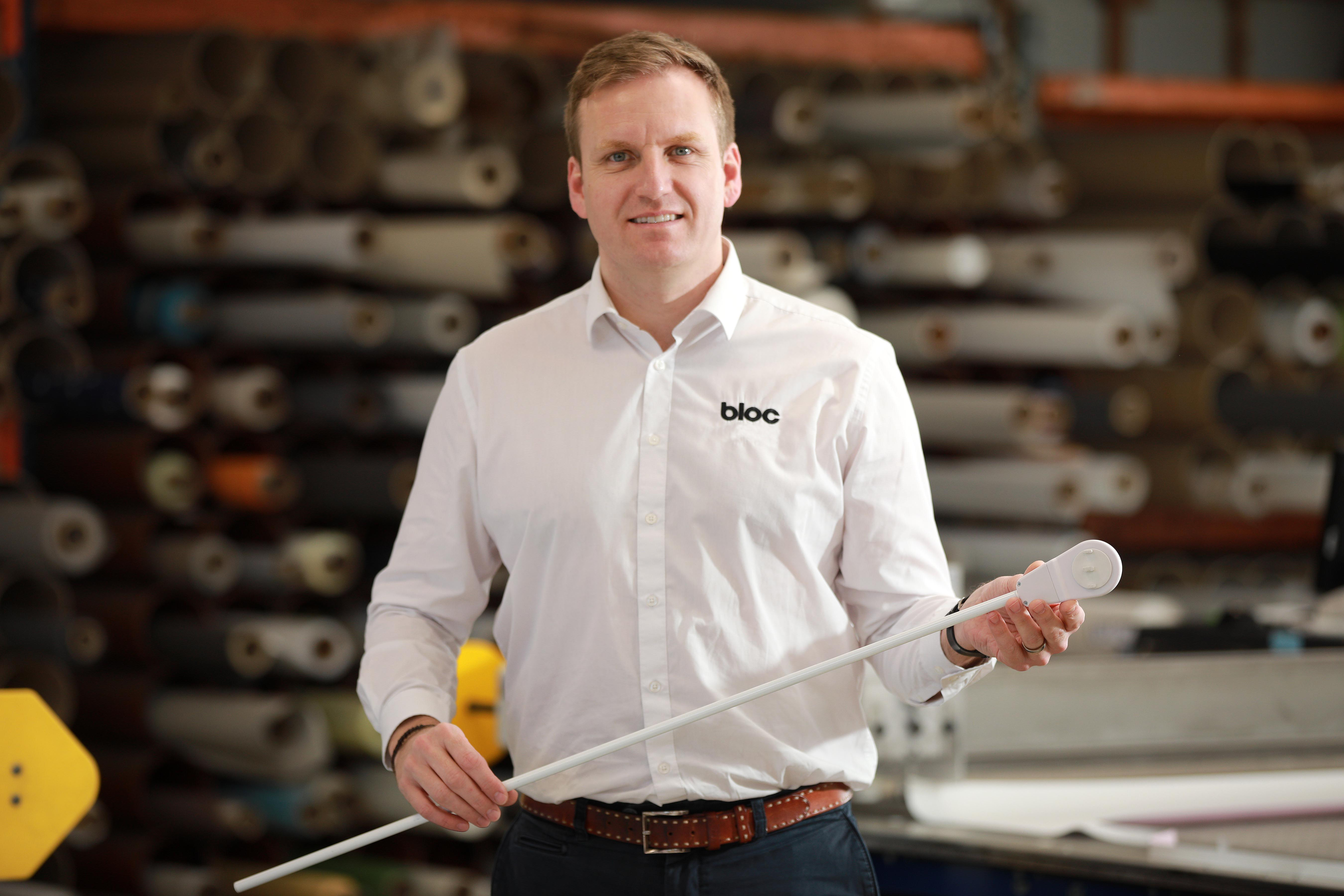Condor Ferries has joined the Belfast Maritime Consortium and will operate the world’s most advanced zero-emission commuter ferry service between Belfast and Bangor.
The ferry service to commence in 2024 will act as a pilot scheme for the revolutionary fast passenger ferries currently under development by the consortium, led by Artemis Technologies.
The vessels will be powered by the transformative Artemis eFoiler ® enabling them to fly above the water, allowing for a comfortable ride, producing minimal wake at high-speed, while using up to 90 per cent less energy than some conventional ferries.
Dr Iain Percy OBE, CEO and Founder of Artemis Technologies said:
“The announcement that Condor Ferries is joining us in the Belfast Maritime Consortium is a hugely significant endorsement of the work we are doing and marks another milestone on our journey towards leading the decarbonisation of maritime.
“With vast experience operating commercial routes, Condor Ferries is well placed to run the inaugural service for the first commuter ferry to be produced at our manufacturing facility in Belfast.
“Working alongside our partners in Belfast City Council, Ards and North Down Borough Council, Belfast Harbour and Power NI, the pilot scheme will give us a better understanding of the needs of ferry operators and local authorities from a vessel design, usage, and infrastructure perspective.
“Belfast will get a glimpse of the future when the pilot service commences operation, but it is just the beginning. We are already receiving interest from around the globe as governments and cities across the world seek sustainable transport alternatives that balance the requirement for people to continue to move around with the need to reduce carbon emissions.”
The pilot service will run from Bangor Marina to Belfast’s Titanic Quarter with an expected journey time of around 30 minutes providing a greener solution to commuters along one of the busiest traffic routes in Northern Ireland.
John Napton, Condor Ferries’ CEO, said:
“We are always looking to the future, and this includes exploring ways of reducing our carbon emissions.
“As an experienced commercial ferry company, we are therefore happy to join the consortium and help to develop this concept into an operational mode of transport.”
Clare McGill, Head of Economic Development, Ards and North Down Borough Council, added:
“As a Council, we are strongly focused on finding new ways of acting more sustainably in how we live, work and operate.
“We welcome the addition of Condor Ferries to the Belfast Maritime Consortium as this allows for the possibility of sustainable transport and could offer our citizens the opportunity to enact a modal shift in transport between Belfast and Bangor, providing an alternative to sitting nose to tail in traffic every day.”
John Walsh, Chief Executive of Belfast City Council said:
“The addition of Condor Ferries to the Belfast Maritime Consortium is hugely welcome and brings our city one step closer to realising our net zero ambitions.
“Blue-green infrastructure will be a vital part of Belfast’s integrated transport plan and we look forward to seeing zero emission ferries on Belfast Lough, transporting people between the City and North Down.”
The Belfast Maritime Consortium is a 14-member syndicate which has brought together a range of industry, academia and public bodies, including, Artemis Technologies, Ards and North Down Borough Council, Belfast City Council, Belfast Harbour, Belfast Met, Catalyst, Condor Ferries, Creative Composites, Invest Northern Ireland, Northern Ireland Advanced Composites Engineering (NIACE), Power NI, Queen’s University Belfast, Spirit AeroSystems, and Ulster University.
The consortium was awarded a grant of £33 million by UKRI’s flagship Strength in Places Fund for the £60m project.
Condor Ferries operates a number of commercial ferry routes between the Channel Islands, mainland UK and France. The company was acquired in 2020 by the Columbia Threadneedle European Sustainable Infrastructure Fund.



